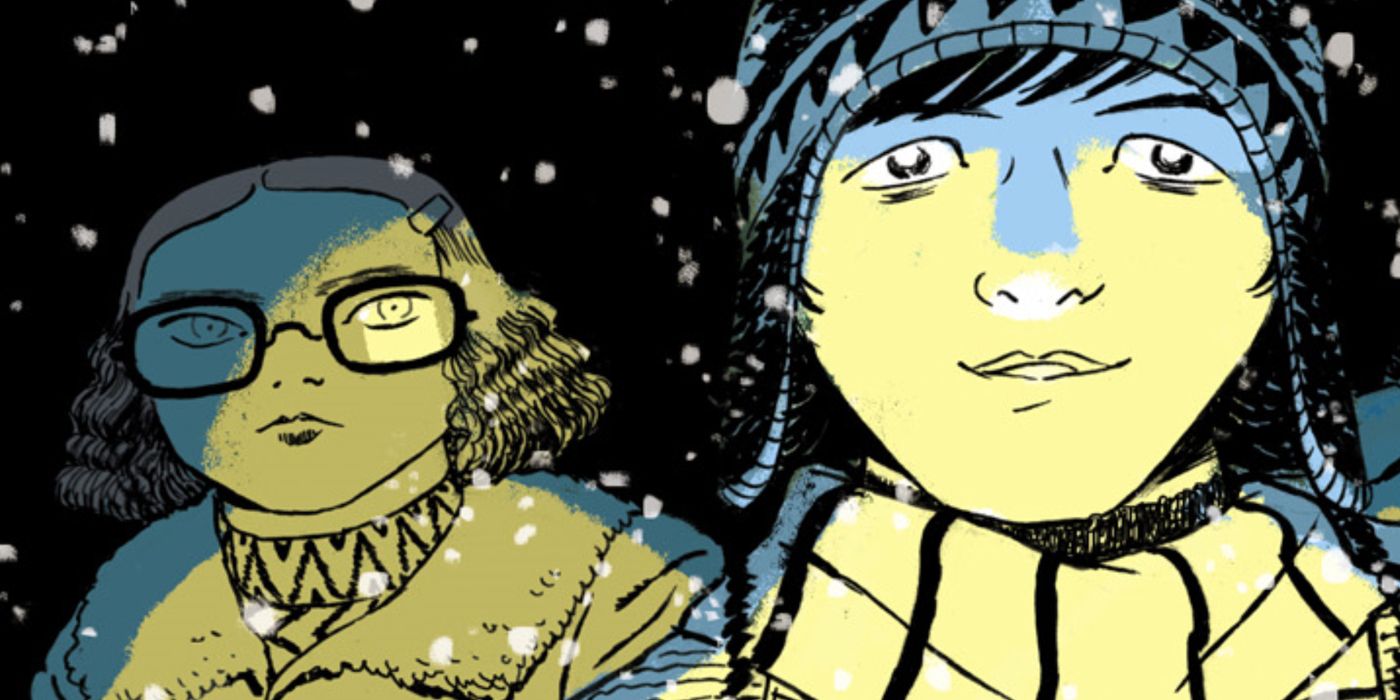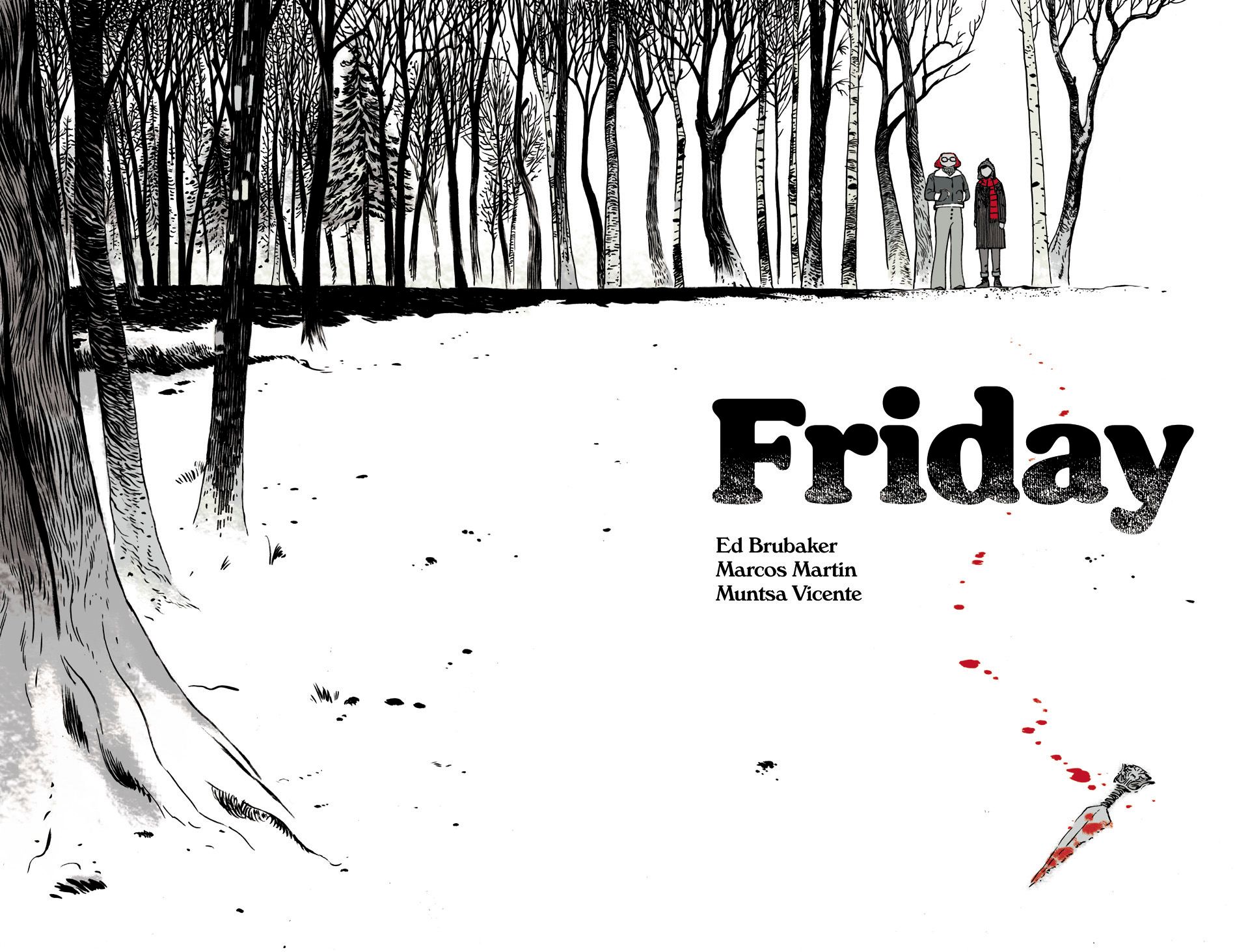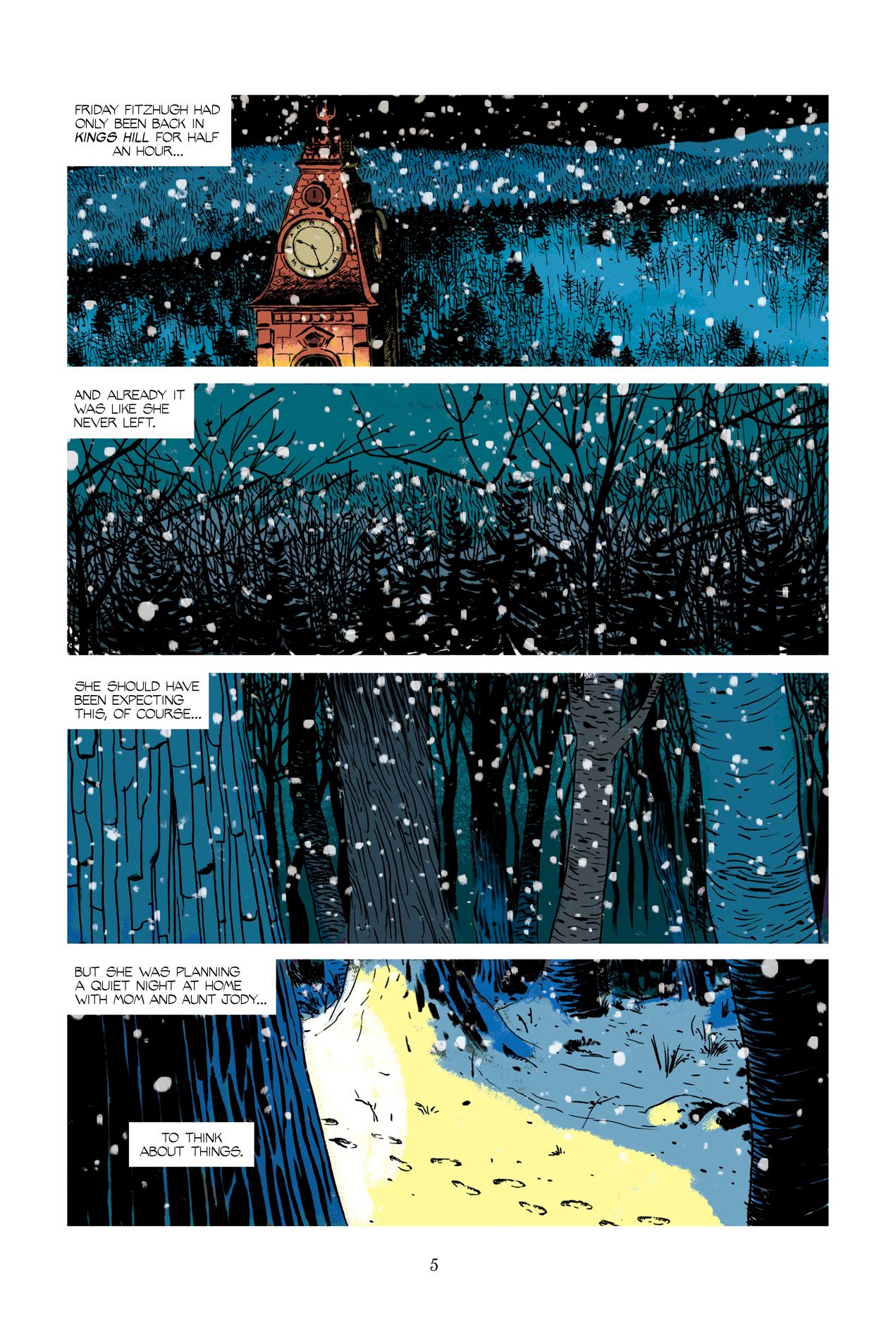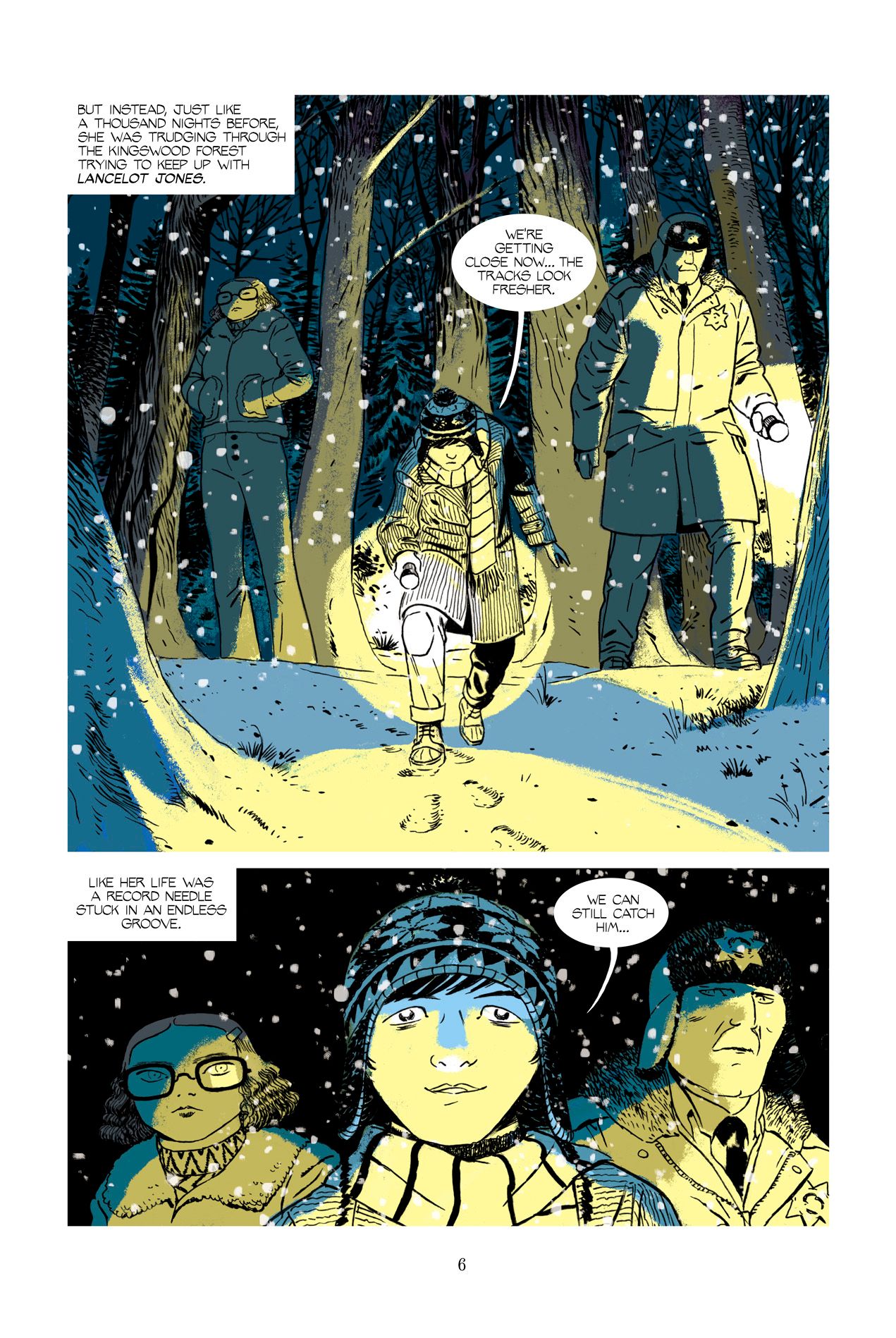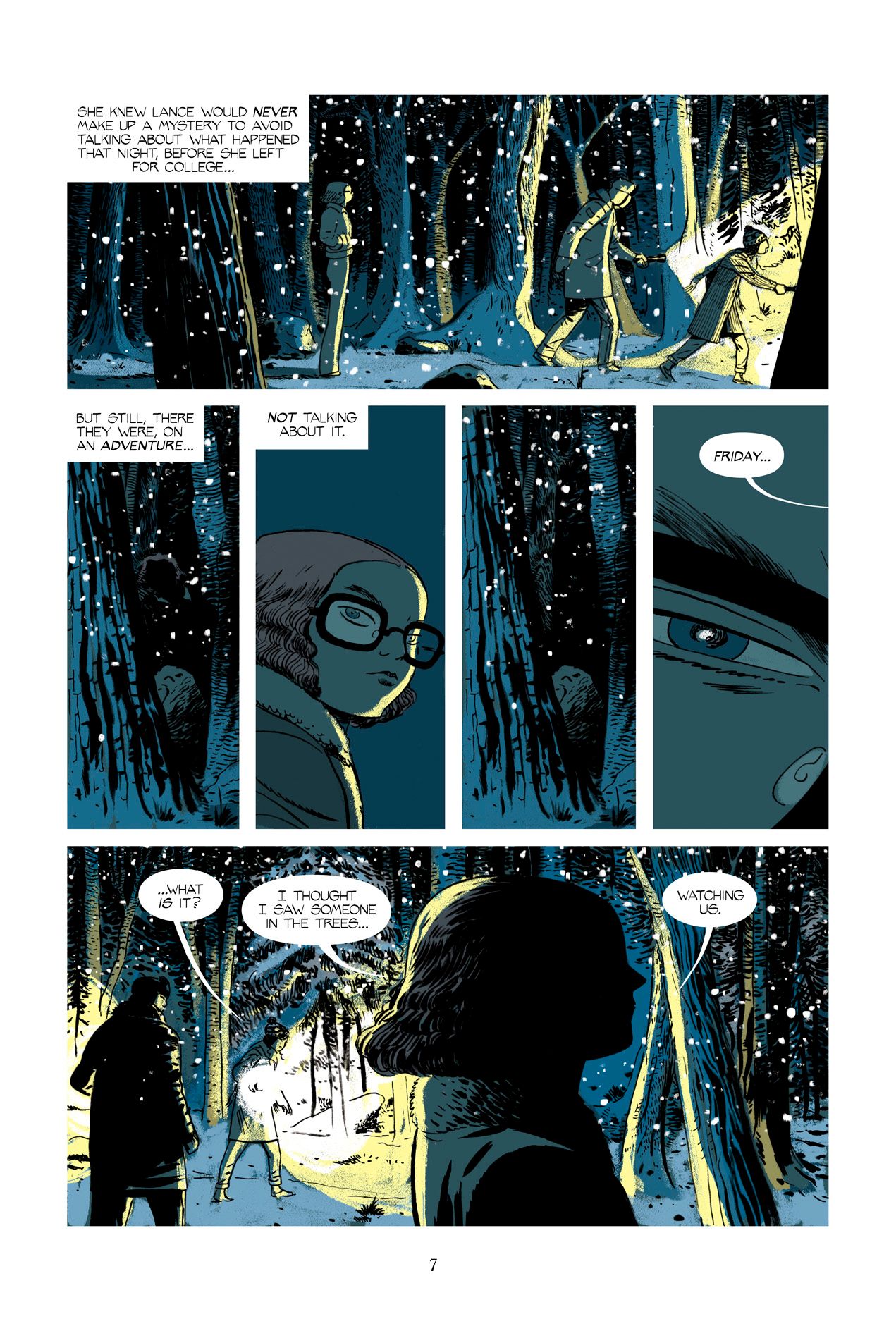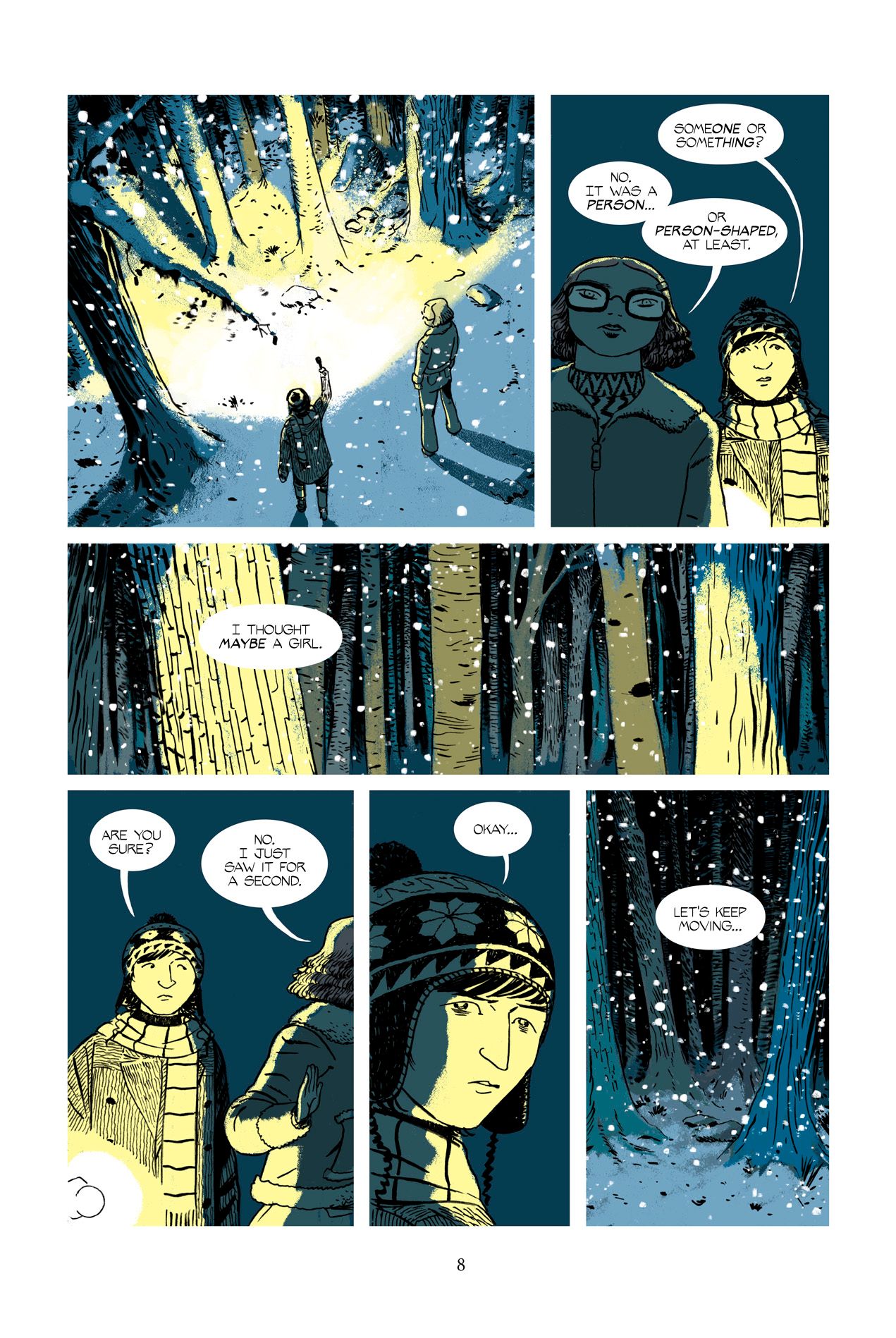While much of the comic book industry is currently in a holding pattern due to the ongoing coronavirus (COVID-19) pandemic, award-winning comic book creators Ed Brubaker and Marcos Martin announced they would release a new ongoing series, Friday, through Martin's digital, pay-what-you-want comic platform Panel Syndicate.
The new series follows a young woman named Friday who spent her youth as an amateur detective in the tradition of Nancy Drew and Harriet the Spy. Returning to her New England town from college having since left her crime-solving past behind her, Friday stumbles on a new, sinister mystery that may be the sleuth's last adventure.
In an exclusive interview with CBR following the series' surprise debut this week, Brubaker and Martin share details about the haunting new title, working together again for the first time in fifteen years and how the global health crisis impacted the release.
You've described Friday as post-YA fiction. I was wondering if you could unpack that term a bit.
Ed Brubaker: You know how young adult fiction heroes are always basically the same age? Like Nancy Drew never grows up. Archie never graduates high school. Encyclopedia Brown is always in 6th grade. The Hardy Boys will always be boys. You can find that over and over again in YA series, kids just living this endless youth as the decades around them change. I always found that both comforting and strange.
Post-YA is just taking those same types of teen heroes, and allowing them to grow up and exist in the real world around them, to allow the strange occult mysteries they investigate to become actual horror stories. Like if the Scooby Doo gang got sacrificed to the devil, I'd consider that post-YA. Though I'm sure that's been in an underground comic.
You had previously blended genres before with Fatale, mixing noir and the occult. What made you want to bring the occult into young adult mystery?
Brubaker: I'm not doing anything new there, I can't take any credit for that. The occult's been in tons of young adult books forever. Like the aforementioned Scooby Doo, even. And Edward Gorey's stuff is full of occult and horror imagery. Childrens horror stories have been around since the beginning of young reader stories, I think. The Brothers Grimm's fairy tales are terrifying in their original form. And you know, R.L. Stine has been selling millions of horror books to kids and teens for decades now. And I would consider Bradbury's Something Wicked This Way Comes as a young adult horror story. And all the John Bellairs books that Gorey illustrated are full of magic and horror.
For me, it was more about blending those two YA archetypes - the teen detective and the teen occult story but letting it become more real. Starting with something that feels very young adult - the genius detective and his partner - but with each chapter it suddenly feels more like a horror story.
Both you and Marcos have evolved considerably since your last collaboration. How has it been working with him again on Friday?
Brubaker: Oh god, our last time working together was under extreme deadline pressure. I'm not even sure we emailed more than twice back then. He and Javier jumped in at the last minute when an artist blew a deadline on a Cap annual, and they saved us by alternating chapters.
Friday was a whole new thing.
Marcos spent longer trying to figure out his style and the character designs -- at multiple different ages! -- than most artists spend drawing several issues. He agonized over every decision, because this is a huge undertaking, but also because he was evolving his style for this book. It's been a lot of fun to watch from my end, but I know for him it's been both a joy and a frustration. He's never happy with anything and I'm like "What are you talking about?! This all looks brilliant!"
Many of your stories are period pieces. What do you find fascinating as a storyteller to set things in an earlier time period?
Brubaker: For Friday, it was mainly about trying to capture a feeling of nostalgia, of those classic young adult series from the 60s and 70s, in a kind of timeless way. I wanted them to feel like characters that would have been in books the same time that Harriet the Spy and Super Fudge and The Great Brain were coming out.
I also just enjoy writing about other periods of time, mostly ones that I lived through. But doing a bunch of research on a time period and place - like 40s Hollywood for The Fade Out - can be a great escape from reality, too. It really just depends on the story that I'm writing, though, and what feels right.
Also, another bonus of a period piece: no cell phones, which can really ruin tension in stories. Notice how many times when you're watching a movie or TV show and the characters break their phone or suddenly can't get a signal.
Ed, you had written Shang-Chi during your Secret Avengers run and had him take on his father. I was just wondering if you had any comment on the [rumored] decision to reimagine the Mandarin as Shang-Chi's father in the upcoming Marvel Studios film.
Brubaker: Well, that's obviously a rights issue. Fu Manchu was a license that Marvel lost a long time ago, so they can't use him in the movie or the comics. But the struggle against an evil father is the primary thing Shang Chi is about, so you need a replacement father one way or another, to tell his story.
Marcos, both you and Ed have very distinct storytelling sensibilities and styles. How was it working with him again for the first time in fifteen years?
Marcos Martin: Well, I basically remember our first collaboration as a frantic race to finish the comic on time. Those deadlines were insane and saying I’m not the fastest artist out there is surely the understatement of the century. But madness aside I remember working with Ed fondly and it all went smoothly enough that we kept in touch on and off over the years.
Luckily, this time around we were not pressured for time, and I took full advantage of that. So much so, at one point I was certain Ed was just going to fly to Barcelona, throw me off the Sagrada Familia and replace me with whatever tourist he found wandering around.
In any case, it would have been worth it because this story is exactly what I was looking for when I contacted Ed again. He just brings in the right amount of mystery and grounded reality combined with a unique melancholic tone that’s integral to his writing and that I simply love. And if that wasn't enough, the mixture of the Lovecraftian New Englandish town and the early 70s was just the icing on the cake.
Also, he never did throw me off a cliff so that’s nice.
With this, you're bringing younger characters into a supernaturally sinister world. How has it been crafting the world of Friday with Muntsa Vicente?
Martin: The perfect combination of a dream coming true, then becoming a nightmare and then a dream again. I was incredibly excited by the opportunity this project brought to experiment with my drawing style and try techniques outside my comfort zone. I felt the mood of the story asked for a more intricate level of line work which led me to look at illustrators and comic book artists I admired but whose style was far removed to what I’ve always gravitated towards. People like Tove Jansson, Crepax, Matsumoto or Harry Clarke to name a few, and most importantly Edward Gorey who is the main influence not only in the character designs but also conceptually, in the overall visual mood and atmosphere of the book. Then, of course, it took me months to try to find the look and style I thought we needed and it all turned into the agonizing process I’m unfortunately so familiar with.
But whatever the end result was I always knew I could count on Muntsa to rise up to the challenge and fix everything with her colors. And that she did. And it wasn’t easy for her either since I asked her to change her coloring approach completely, with no use of gradients at all and limiting her palette to just 128 colors like the old comics of the late 70s. It was a bit of a struggle for her too, at the beginning, but she managed to make the concept her own and turn it into what I think is her best work, yet, capturing the mood and atmosphere of the story perfectly. And no divorce, yet, so all good news.
Did the pandemic impact the release schedule for Friday in any way?
Martin: Well, it delayed the release by a few weeks since it slowed down our production at first. But it also was a determining factor to put it out now instead of waiting around until later because we felt it would be good for the industry and most definitely, our mental health. Also, we weren’t really sure there would be any world left in a few months so what the hell.
It's been about seven years since you launched Panel Syndicate. How has the experience been and how do you see its place in the current comic book industry?
Martin: I can say Panel Syndicate is definitely the highlight of my career. It’s the old tale I’ll be annoying my grandchildren with, if my idiot kids ever have children. (I’m kidding, they’re lovely, we’ve just been locked in confinement in our apartment for over a month now).
I’m not sure about what the future holds but if Panel Syndicate wants to be something more than a footnote in comics history it’s going to need an even greater grassroots support from both comics readers and creators in order to really change the business model that has dominated the industry for so long. On the other hand, I’m old and really tired so that would surely be the end of me. And I really, really want to annoy my grandchildren.

